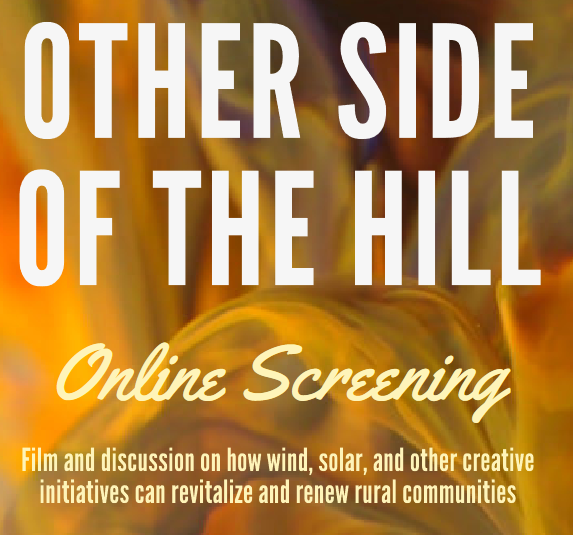Join Us for Online Screening of ‘Other Side of the Hill’
 Film and discussion on how wind, solar, and other creative initiatives can revitalize and renew rural communities. Hosted by New Mexico Interfaith Power & Light, 350 New Mexico, Citizens Caring for the Future and Renew New Mexico
Film and discussion on how wind, solar, and other creative initiatives can revitalize and renew rural communities. Hosted by New Mexico Interfaith Power & Light, 350 New Mexico, Citizens Caring for the Future and Renew New Mexico
About the film
Emmy nominated “Other Side of the Hill” explores the impacts of a changing climate in rural Eastern Oregon – as seen through the eyes of local leaders on the ground. From innovative timber operations in Wallowa County to large-scale solar in Lakeview, we amplify the voices of rural communities often left unheard. In a time of unprecedented cultural divide between rural and urban Oregon, we find common ground in an urgency to address a changing landscape.
FEATURED PANELISTS
- Rep. Angelica Rubio
- Myra Pancrazio (Executive Director, Estancia Valley Economic Development Association)
- Bob Bresnhan (Co-Founder, Renewable Taos)
- Danielle Garcia (ReNew Mexico)
